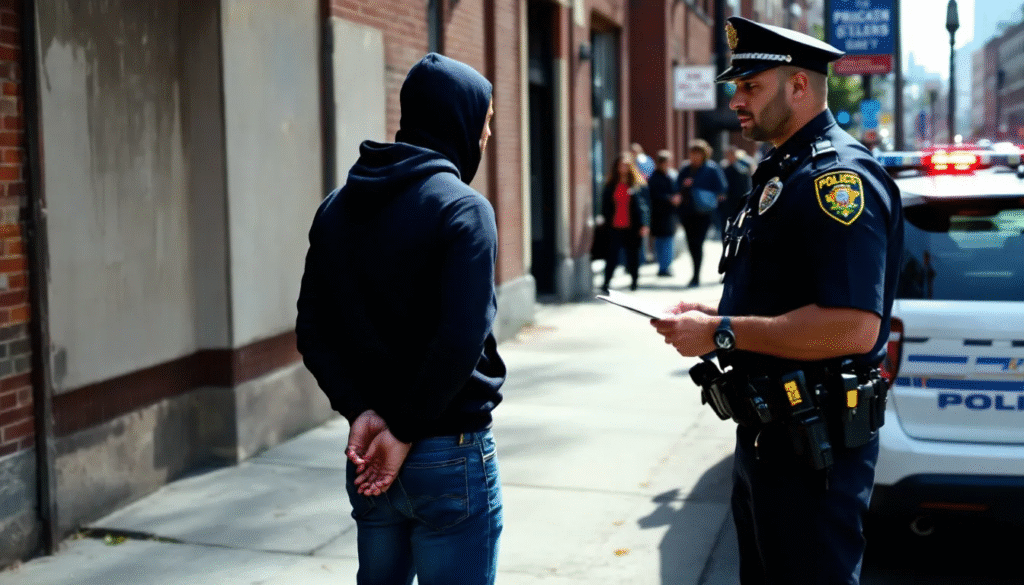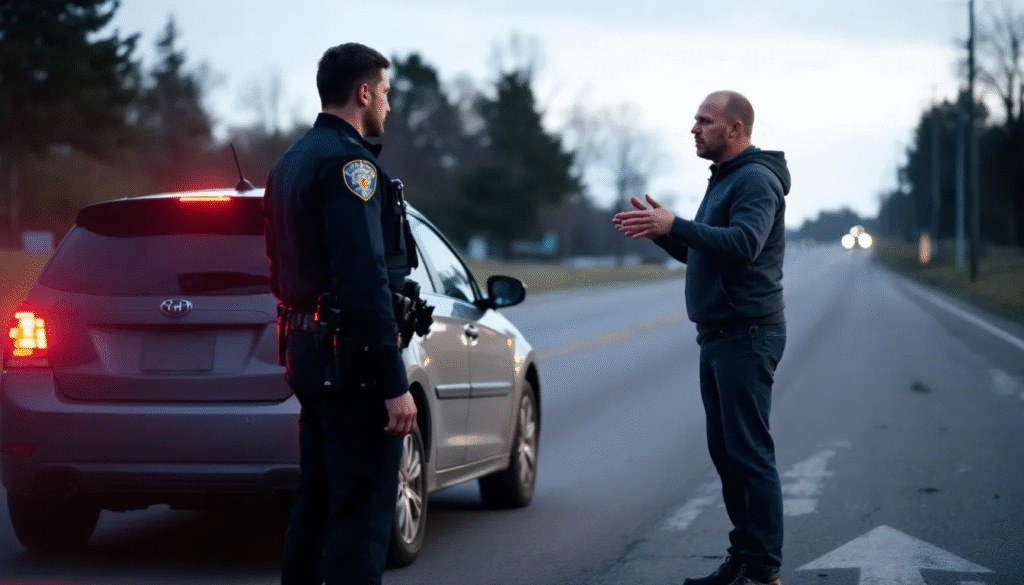Colorado Springs DUID Lawyer
EXPERT DEFENSE AGAINST DRUG IMPAIRMENT CHARGES

Our Colorado Springs DUID attorney, Mike Moran, specializes in defending clients charged with Driving Under the Influence of Drugs (DUID), a serious criminal offense that requires specialized legal expertise due to complex drug testing and impairment standards in Colorado.
Unlike standard DUI cases involving alcohol, DUID charges present unique challenges that demand an experienced criminal defense attorney with specific knowledge of drug metabolism, testing procedures, and Colorado’s evolving cannabis laws.
This comprehensive guide covers the critical differences between DUID and DUI charges, how Colorado’s marijuana legalization complicates drug impairment cases, proven defense strategies used by experienced dui attorneys in Colorado Springs, and essential information about local court procedures in El Paso County.
Whether you’re facing your first dui offense or have prior convictions, understanding these distinctions could mean the difference between a dui conviction with life altering consequences and successfully protecting your driving record and future employment opportunities.
If you’re facing DUID charges in Colorado Springs, immediate consultation with a specialized dui attorney is essential to preserve your rights and begin building an effective defense strategy before critical deadlines expire.
get help now
Request a free consultation
Practice Areas
UNDERSTANDING DUID CHARGES
Under Colorado Revised Statutes 42-4-1301, DUID (Driving Under the Influence of Drugs) encompasses any situation where a driver operates a motor vehicle while substantially impaired by drugs to the slightest degree. This broad definition applies to prescription medications, over-the-counter drugs, illegal substances, and marijuana—regardless of whether the substance is legally possessed or medically prescribed.
Unlike alcohol DUI cases with clear blood alcohol content thresholds (0.08% BAC), most DUID charges lack defined per se limits, making these criminal cases significantly more complex. The prosecution must prove substantial impairment through field sobriety test results, police officer observations, Drug Recognition Expert (DRE) evaluations, and chemical test results rather than relying on straightforward numerical standards.
Colorado law distinguishes between three impairment levels: DUI (substantial impairment), DWAI (ability impaired to the slightest degree), and DUID (drug impairment). Each carries different penalties and requires distinct defense strategies from experienced lawyers familiar with Colorado DUI laws.
DUID Relationship to Colorado’s Cannabis Laws
Colorado’s marijuana legalization creates unique challenges for DUID defense in Colorado Springs. The state established a “permissible inference” standard of 5 nanograms of THC per milliliter of blood, meaning prosecutors can argue impairment based solely on this threshold. However, experienced criminal defense attorneys understand that THC metabolites can remain detectable long after impairment effects have subsided, making this standard scientifically questionable.
The complexity increases because THC affects individuals differently based on tolerance, frequency of use, metabolism, and consumption method. A medical marijuana patient might test above 5 nanograms while completely sober, while an occasional user could be significantly impaired below this threshold. This scientific uncertainty provides opportunities for skilled dui defense attorneys to challenge DUID charges effectively.
DUID CASES REQUIRE SPECIALIZED LEGAL DEFENSE
DUID cases demand specialized expertise that general criminal defense lawyers may lack. The entire process involves complex drug testing procedures, strict chain of custody requirements, and sophisticated understanding of pharmacokinetics that standard dui attorneys might not possess. Blood draws must follow specific protocols, and even minor procedural violations can result in evidence suppression.
Also see:
Drug Crimes (possession / distribution)
Drug metabolism varies dramatically between individuals, making impairment nearly impossible to prove through blood test results alone. Factors including body weight, medical conditions, prescription drug interactions, and genetic variations all affect how substances process through the body. An experienced dui attorney understands these variables and can effectively cross examine witnesses, including police officers and laboratory technicians.
Colorado Springs courts handle hundreds of dui cases annually, and local district attorneys have developed aggressive prosecution tactics specifically for DUID charges. Experienced criminal defense attorneys familiar with the local court system, hearing officers, and district attorney practices provide crucial advantages in negotiating plea deals or preparing for trial.
Statistical data shows that defendants represented by specialized dui lawyers achieve significantly better outcomes than those with general criminal defense representation, including higher rates of charge dismissals, reduced penalties, and successful challenges to license suspension proceedings.
DUID PENALTIES
Offense Level | Jail Time | Fines | License Suspension | Additional Requirements |
|---|---|---|---|---|
First DUID Offense | Up to 1 year | Up to $1,000 | 9 months | 48-96 hours community service, drug education |
Second DUID | 10 days to 1 year | $600-$1,500 | 1 year | Mandatory treatment, extended probation |
Felony DUID (injury) | 2-6 years prison | $2,000-$500,000 | 3 years | Victim impact panels, restitution |
DUID with Bodily Injury | 2-12 years prison | $3,000-$750,000 | Permanent revocation possible | Mandatory vehicle impoundment |
These penalties represent maximum potential consequences. Experienced dui attorneys frequently achieve reduced charges, deferred sentences, or alternative penalties that minimize the impact on clients’ lives and careers.
GUIDE TO DEFENDING YOUR COLORADO DUID CASE
Step 1: DON'T DELAY - GET HELP IMMEDIATELY
- Contact a specialized Colorado Springs DUI lawyer within 7 days of arrest to request a DMV hearing and preserve your driving privileges. This deadline is absolute – missing it results in automatic license suspension regardless of your criminal case outcome. During your free initial consultation, provide complete information about prescription medications, medical conditions, and the circumstances surrounding your arrest.
- Document everything immediately: the timeline of drug use, prescription bottle information, medical records, and witness contact information. Preserve your prescription medications in their original containers and obtain copies of all medical records related to any prescribed substances. This evidence becomes crucial for building your defense strategy.
- Remain silent during police questioning and invoke your right to an attorney. Anything you say can be used against you, and police officers are trained to elicit incriminating statements during seemingly casual conversation at the police station.
Step 2: CHALLENGE DRUG TESTING EVIDENCE & PROCEDURES
Our criminal defense attorney will immediately request independent retesting of blood samples and review all chain of custody documentation. Blood draws must follow strict medical protocols, and any deviation can invalidate results. Laboratory certifications, technician qualifications, and equipment calibration records all provide potential challenges to the prosecution’s evidence.
The distinction between active THC and inactive metabolites becomes critical in marijuana DUID cases. Active THC indicates recent use and potential impairment, while metabolites can persist for weeks after use without indicating current impairment. Experienced dui lawyers understand these scientific distinctions and can effectively argue for charge dismissals based on testing limitations.
Challenge the Drug Recognition Expert evaluation if conducted. DRE protocols require specific training and procedures, and any deviation provides grounds for evidence suppression. Many police officers lack proper DRE certification or fail to follow required evaluation steps.
Step 3: BUILD COMPREHENSIVE DUID DEFENSE STRATEGY
Gather expert testimony from medical professionals who can explain drug metabolism, tolerance effects, and the limitations of current testing methods. These experts can testify that blood test results don’t correlate with actual impairment, particularly in cases involving prescription medications or chronic marijuana use.
Challenge field sobriety test validity for drug detection. These tests were designed for alcohol impairment and have limited reliability for drug impairment detection. Medical conditions, fatigue, anxiety, and other factors can cause test failure without any substance use.
Negotiate with district attorneys for reduced charges when appropriate. Experienced criminal defense attorneys understand local prosecution practices and can often achieve favorable plea deals that avoid dui convictions and minimize penalties.
COMMON MISTAKES TO AVOID IN DUID CASES
Mistake 1: Assuming DUID cases follow the same procedures as alcohol DUI charges. Drug impairment cases require completely different defense strategies, expert witnesses, and scientific challenges that don’t apply to breathalyzer test cases.
Mistake 2: Failing to request independent blood testing within critical timeframes. Blood samples degrade over time, and waiting too long can eliminate opportunities to challenge laboratory results or discover testing errors.
Mistake 3: Not documenting prescription medications and medical conditions affecting test results. Certain medical conditions can create false positives, and prescription drug interactions can affect blood test interpretation.
Pro Tip: Early consultation with a specialized dui attorney prevents these costly errors and ensures proper evidence preservation. Many defense opportunities disappear if not pursued immediately after arrest, making prompt legal action essential for successful DUID defense.

REAL-LIFE DUID CASE EXAMPLE: MEDICAL MARIJUANA PATIENT VICTORY
Case Study: A Colorado Springs medical marijuana patient with a valid registry card was charged with DUID after testing above the 5 nanogram THC limit following a minor traffic accident. Despite legal marijuana use, the district attorney pursued felony dui charges due to property damage.
Starting Situation: The client faced a potential permanent criminal record, license suspension, and significant fines despite using marijuana legally for chronic pain management. Initial blood alcohol content was zero, but THC levels measured 8 nanograms per milliliter.
Defense Steps Taken:
Challenged blood draw procedures and discovered improper storage temperature
Presented medical expert testimony on THC tolerance in chronic users
Demonstrated client showed no signs of actual impairment during police interaction
Argued that metabolite presence didn’t indicate current impairment
Final Results: Charges reduced to careless driving with no dui conviction, avoiding license suspension and criminal record implications. The client paid minimal fines and completed traffic school instead of facing felony penalties.
COLORADO SPRINGS DUID DEFENSE FAQ'S
Q1: Can I be charged with DUID for prescription medications?
A1: Yes, legally prescribed medications can result in DUID charges if they cause substantial impairment while driving. Even following prescription instructions doesn’t provide immunity from criminal charges if impairment occurs.
Q2: How long does marijuana stay detectable in blood tests?
A2: THC metabolites can be detected days or weeks after use, but active THC indicating recent use typically dissipates within hours. The timing depends on usage frequency, metabolism, and testing methods used.
Q3: What’s the difference between DUID and DUI penalties in Colorado Springs?
A3: DUID penalties mirror DUI penalties but involve different testing procedures and evidence challenges. Both carry identical potential jail time, fines, and license suspension periods.
Q4: Can DUID charges be dismissed in Colorado Springs?
A4: Yes, experienced dui attorneys regularly achieve dismissals by challenging evidence collection, testing procedures, or proving lack of actual impairment. Many DUID cases have stronger defenses than alcohol DUI cases.
Q5: Do I need to plead guilty if I was actually using drugs?
A5: Never plead guilty without consulting an experienced attorney. Using substances doesn’t automatically prove impairment, and many cases can be successfully defended or reduced to lesser charges.
CONCLUSION: PROTECT YOUR FUTURE WITH EXPERIENCED DUID DEFENSE
DUID charges in Colorado Springs require immediate action and specialized legal expertise that general criminal defense attorneys may lack. The complex intersection of drug testing science, Colorado cannabis laws, and local court procedures demands an experienced criminal defense attorney familiar with these unique challenges.
Key takeaways include: DUID cases differ significantly from alcohol DUI charges and require specialized defense strategies; early legal intervention is crucial for preserving evidence and meeting critical deadlines; challenging drug testing procedures and expert testimony often provides the strongest defense options; and local court experience can make the difference between conviction and successful charge resolution.
Don’t risk your future employment, driving privileges, and criminal record by facing these serious consequences alone. Contact an experienced Colorado Springs dui lawyer immediately for a free consultation to discuss your case and begin building an effective defense strategy. Time-sensitive deadlines for DMV hearings and evidence preservation make prompt legal action essential for protecting your rights and achieving the best possible outcome.
The stakes are too high to delay – your freedom, career, and future depend on expert legal representation from the moment charges are filed.
